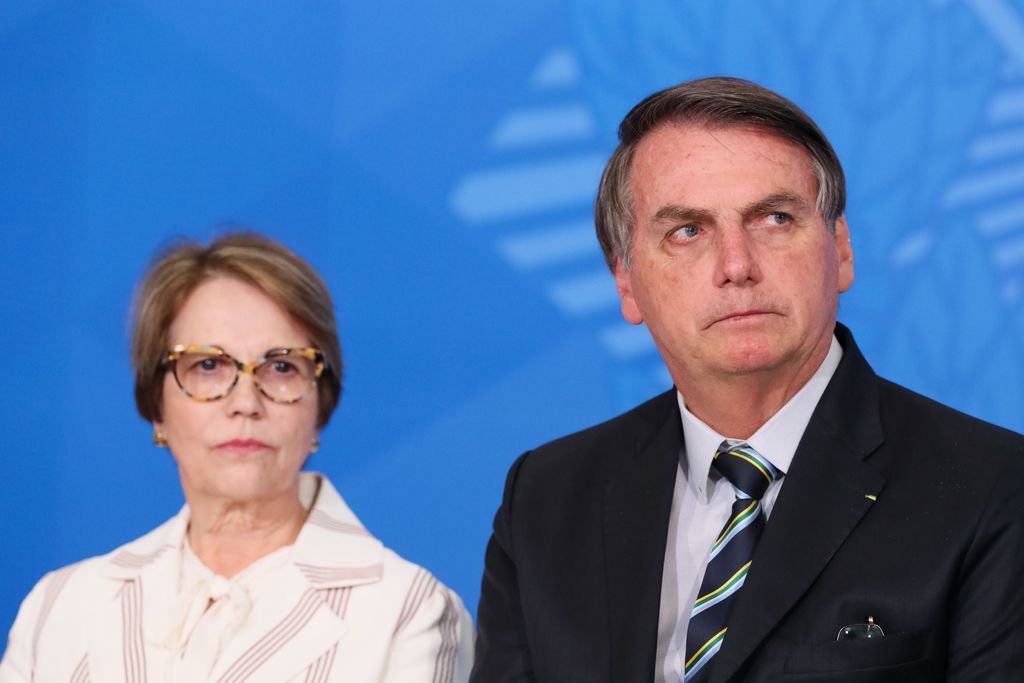RIO DE JANEIRO, BRAZIL – President Jair Bolsonaro said on Tuesday afternoon, September 8th, that he appealed to supermarket owners to contain the rise in the price of rice. Earlier, during a government meeting, Minister of Agriculture Tereza Cristina, said that their will be no shortage of the foodstuff the country.
Both Bolsonaro’s and the Minister’s statements were published on the President’s social media. The two discussed the rise in the price of one of the products considered essential on Brazilians’ menu.
The President discussed the topic during a meeting with doctors favorable to the use of hydroxychloroquine for the treatment of Covid-19 even though the substance has no proven medical efficacy.

Bolsonaro said he has been talking with supermarket chain owners and made an “appeal” for products’ profit margins such as rice to remain “close to zero”. The President added that he does not intend to fix prices.
“I have appealed to them, no one will use the Bic pen to fix anything, there is no freezing of prices, but rather ask them that the profit of these essential products in supermarkets be close to zero. I believe that a new crop will start to be harvested in December, January, particularly rice, so the trend is for the price to return to normal,” said the President.
In the morning, Tereza Cristina also discussed the subject when asked by a ten-year-old YouTuber. The Minister was at the government cabinet meeting, which includes Bolsonaro, Ministers, and Vice-President Hamilton Mourão.
Bolsonaro suggested that the girl ask Tereza about the rice issue. The girl asked the Minister whether the price would drop or rise.
“There will be no shortage of rice. Now it (the price) is high, but we will make it go down, God willing we will have a super harvest next year,” said Tereza.
Other measures
Speaking on the topic, Bolsonaro said that the government is preparing other measures to address food inflation and “to provide a response to prices that have skyrocketed in supermarkets.” The president failed to detail what will be done.
Last week, on a trip to São Paulo’s interior, Bolsonaro spoke about an “appeal” to traders. On the video, the President said he is calling for support from middlemen and owners of large supermarket chains to prevent the rise in the price of staple foods.
The supermarket sector association released a letter last Thursday, September 3rd, drawing attention to the increase in prices of market basket items. Since the start of the Covid-19 pandemic, the demand for these foods has grown, because more people are eating at home.
Market inflation
In addition to rice, products such as beans and meat have also increased in price in recent months. Among the explanations are the changes in consumption during the pandemic and the bullish dollar.
The official inflation in the country until July amounts to 0,46 percent. But a survey by the Inter-Union Department of Statistics and Socioeconomic Studies (DIEESE) shows that the cost of the market basket has already risen well above inflation in 16 capital cities.
In Salvador, for one, the market basket has already increased 16 percent since January. Of the 17 capitals researched, Brasília was the only one where the basket became cheaper this year.
According to the Confederation of Agriculture and Livestock (CNA), the pandemic led Brazilians to buy more food, which pushed prices up even before the hikes caused by the off-season. Furthermore, the soaring dollar in relation to the real increased the price of agricultural supplies.
“With the higher exchange rate, fertilizer is more expensive. The soy and corn bran that is used in animal feed has regions with over 50 percent increase in production costs,” explains Bruno Lucchi, CNA’s technical superintendent.
The DIEESE states that the high dollar also encourages producers to sell to other countries.
“When you export a product, you send it out, producers are paid in dollars, and when they convert it into reais they profit more. So a depreciated exchange rate encourages exports. There is a great impact of exports on the volume of products offered on the internal market. When they come in lower quantity, there is a reduction on the internal offer and they reach families at a higher price,” explains the DIEESE’s senior economist, Patrícia Costa.
Source: G1

